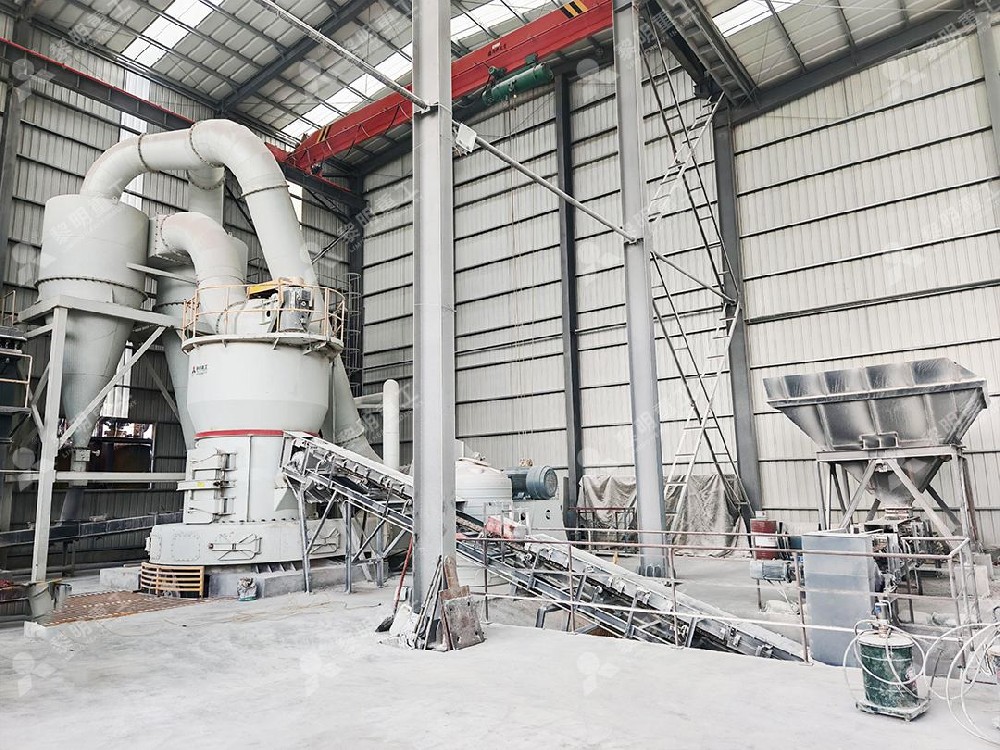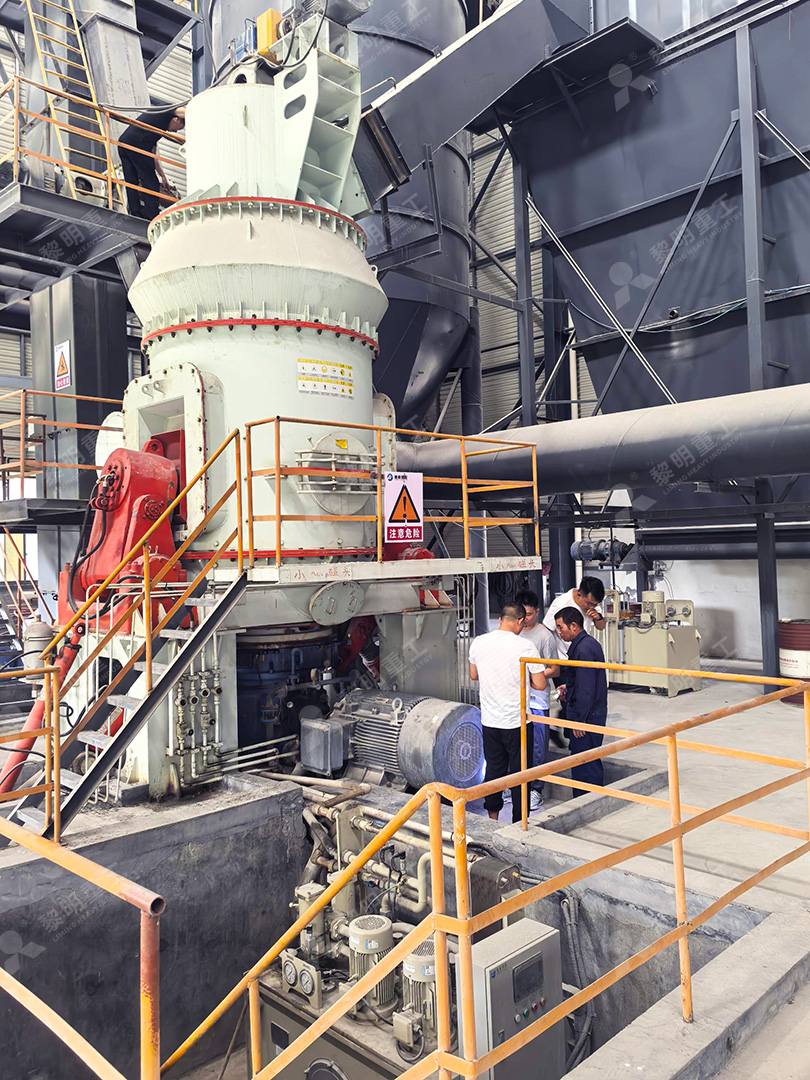Industry News
Why Is Dolomite Powder Used in Detergent and Soap Industry?
2025-11-17 08:45:18
We are Liming Heavy Industry, a manufacturer of various types of industrial crushers, such as Raymond Mill, Trapezoidal Mill, Vertical Mill, Ultrafine Mill, Ball Mill, etc.
Our mills can process the following minerals:
limestone, quicklime, kaolin, talc, barite, bentonite, calcium carbonate, dolomite, coal, gypsum, clay, carbon black, slag, cement raw materials, cement clinker, etc.
If you need a mill to process stone or minerals into powder, please feel free to contact me (WhatsApp: +86 153 3380 7511). Thank you.
Dolomite is a double carbonate mineral composed of calcium and magnesium. While it is widely known for its applications in construction, agriculture, and metallurgy, it also holds a significant role in the detergent and soap industry. The finely ground powder of dolomite enhances product quality, improves stability, and reduces production cost. These characteristics make it a preferred additive for manufacturers seeking consistent performance and efficiency.

1. Acts as an Effective Filler and Extender
One of the primary reasons dolomite powder is used in detergent and soap manufacturing is its effectiveness as a filler. Detergent formulas require bulk materials that provide volume without compromising performance. Dolomite offers the following advantages:
increases the volume of detergent powder;
lowers production costs while maintaining cleaning capability;
improves the texture and flowability of finished products;
enhances the uniformity of powder mixtures.
Its chemical stability ensures that it does not react with other detergent components, allowing consistent performance across large production batches.
2. Improves Detergency and Suspension Properties
Dolomite's fine particle size and specific mineral composition aid in improving detergent action. When mixed with surfactants and builders, dolomite helps maintain the suspension of dirt particles, preventing them from redepositing on fabrics.
The presence of magnesium contributes to the structural strength and stability of detergent granules. The calcium content supports better abrasive performance for dishwashing and household cleaning products without damaging surfaces.
This makes dolomite especially valuable in:
laundry washing powders,
dishwashing detergents,
multipurpose household cleaners,
industrial cleaning agents.
_1761355701094.jpg)
3. Provides Gentle Abrasion for Soaps
In bar soap and toilet soap formulations, dolomite powder serves as a mild abrasive. It helps remove dirt and oil from the skin without causing irritation. Compared with more aggressive minerals, dolomite offers:
smoother skin feel;
better lather stability;
uniform texture of the soap bar;
improved resistance to cracking.
Its fine and uniform grains contribute to a consistent finish in premium cosmetic soaps as well as in economical washing soaps used in industrial and household applications.
4. Enhances Whiteness and Brightness
Detergent manufacturers value dolomite for its natural whiteness. High-quality dolomite powder reflects light and improves the brightness of detergent products, making them visually appealing to consumers.
In soaps and cosmetic formulations, it improves color uniformity and provides a cleaner appearance. This optical brightness is especially important in:
high-grade laundry detergents,
cosmetic and beauty soaps,
cleaning powders with color-sensitive additives.

5. Neutralizes Acidity in Formulations
Dolomite's alkaline nature allows it to balance acidity levels in detergent mixtures. Many surfactants and chemical additives require a stable pH to function properly. Dolomite helps maintain this balance, providing:
better chemical stability,
longer shelf life,
improved performance in both soft and hard water conditions.
This pH-buffering ability is particularly important for soaps intended for sensitive skin or specialty cleaning uses.
6. Thermal Stability During Manufacturing
Detergent production processes often involve high temperatures, especially in spray-drying towers or during hot mixing stages. Dolomite powder maintains its structural integrity under these conditions.
Its thermal stability ensures:
consistent granule structure;
less dust formation;
improved handling and storage properties.
This feature contributes to stable manufacturing operations and predictable product quality.
7. Why Accurate Grinding Matters for Dolomite
To meet the requirements of the detergent and soap industry, dolomite must be processed into very fine and uniform powder. Particle size affects whiteness, dispersion, flowability, and final performance of the product.
High-quality grinding equipment is therefore essential. Industrial manufacturers typically rely on mills that ensure:
tight control over final fineness,
stable particle distribution,
high output with low energy consumption.
_1761361296291.jpg)
Two types of mills are commonly chosen for producing detergent-grade dolomite:
Raymond Mill by Liming Heavy Industry
Known for reliable performance and stable fineness, this mill is suitable for producing medium to fine dolomite powder. Key benefits include:
consistent particle size;
efficient processing with low operating costs;
durable and stable structure for long-term production.
This mill is widely used by detergent raw-material suppliers who require dependable output and high product quality.
Vertical Mill by Liming Heavy Industry
This equipment integrates grinding, drying, and classifying in a single system and is ideal for large-scale production. Advantages include:
high efficiency at lower energy consumption;
ability to produce fine and ultra-fine dolomite powder;
precise control over fineness;
compact plant layout and reduced maintenance needs.
Vertical mills are suitable for major detergent powder producers who need stable supply and precise powder quality.
Conclusion
Dolomite powder plays a vital role in the detergent and soap industry due to its filler properties, gentle abrasiveness, pH-stabilizing nature, brightness, and overall compatibility with chemical formulations. Its ability to enhance product quality while reducing production costs makes it an essential raw material across the cleaning and personal care sectors.
To achieve the required powder fineness and consistency, manufacturers rely on high-performance grinding equipment. The Raymond and vertical mills supplied by Liming Heavy Industry provide the stability, efficiency, and precision necessary for producing detergent-grade dolomite at industrial scale.
_1761355927036.jpg)
FAQ
1. Why is dolomite preferred over other minerals as a detergent filler?
Because it provides excellent volume, stability, and whiteness at a lower cost while remaining chemically inert in detergent formulations.
2. Does dolomite improve cleaning performance?
Indirectly, yes. Its fine particles help prevent dirt redeposition and support the suspension properties of detergent mixtures.
3. Is dolomite safe for use in soap and personal care products?
Yes. Its mild abrasiveness and chemical stability make it suitable for both cosmetic and washing soaps.
4. What fineness is typically required for detergent-grade dolomite?
Manufacturers usually require fine and uniformly distributed powder, depending on the specific detergent formula.
5. Which grinding equipment is recommended for producing dolomite powder?
Raymond mills and vertical mills from Liming Heavy Industry are widely used due to their stable performance, efficiency, and precise control over particle size.
6. Does dolomite affect the color of soaps or detergents?
Yes. Its high natural whiteness improves brightness and enhances the visual appeal of the final product.







